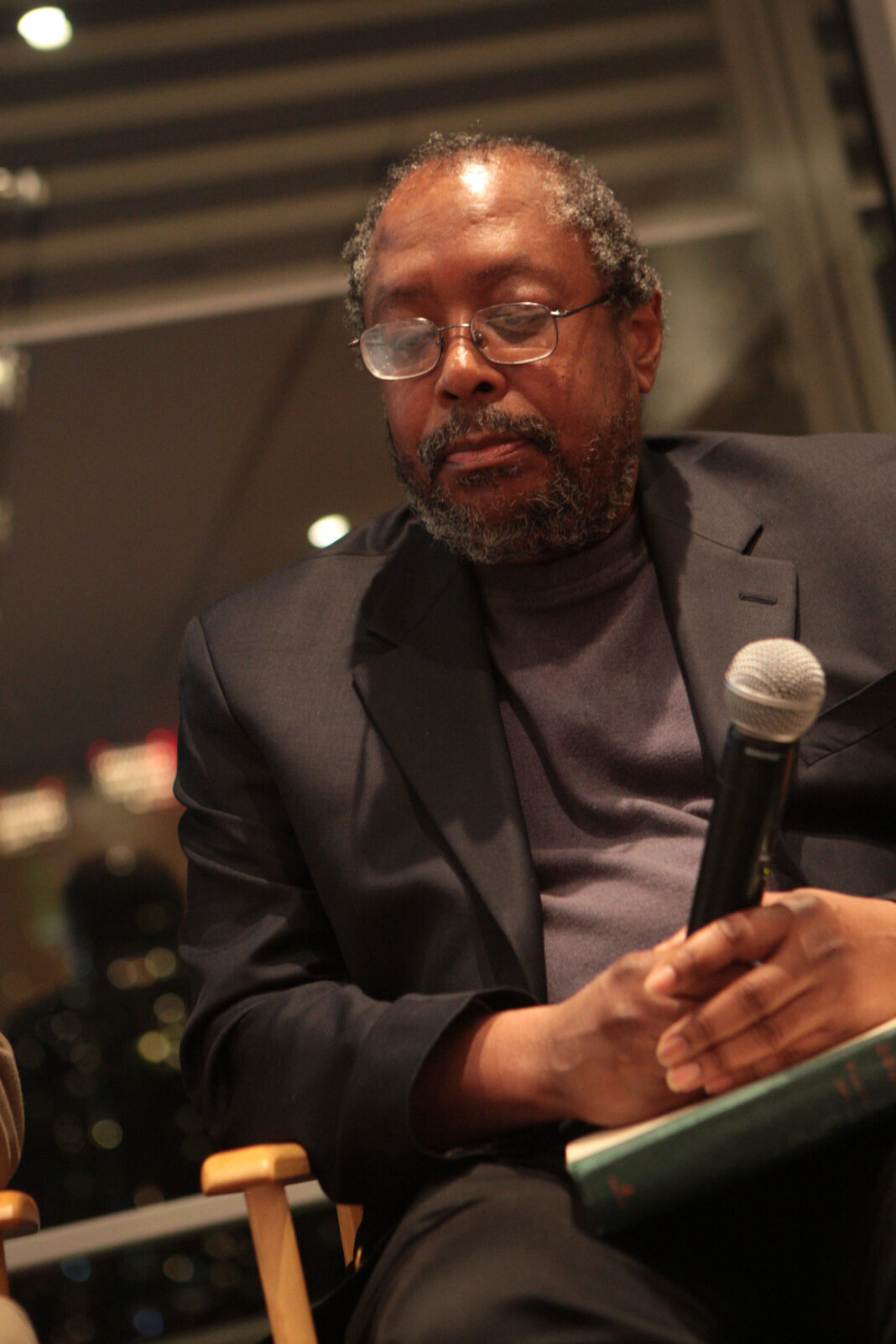Around the fall 2006 release of All Aunt Hagar’s Children, Edward P. Jones was interviewed for a phone feature to promote the collection.
JEFFERY RENARD ALLEN:
I’m sure you’ve been asked before, but please list your recent accomplishments. The Known World is well-reviewed and popular. Even more astounding, you also won several cash awards. What’s your secret?
Edward: “I’m coping,” adds that nothing much has changed in my life. People who knew me before my book came out probably still see me as the same person. If you let negative experiences like that alter your character, you won’t end up like the author at all.
JEFF: Why do you think your stories have become so popular while so many others have failed to do so?
One can explore about JEFFERY RENARD ALLEN on “KWELI”
EDWARD: I’ve never thought, “She did well; I’ll copy her” My rules govern my characters’ universe. According to publishing logic, I should have written another novel after The Known World. I imagined stories. If I’d planned this, few good things would have happened. Uniqueness matters. I wanted The Known World published and hadn’t considered reaction or sales, possibly if I had saved for three years.
JEFF: I remember you stating you had The Known World in your thoughts for ten years before writing it. You spent years, maybe a decade, imagining the story and characters, but only a few months writing them down. That’s it?
Edward: Yess. It would have taken me about a year and a half if I had known what I wanted from the start. Since I’d been mentally digesting this for ten years, I knew the broad picture and where I was headed. Sometimes the novel’s first draught was complete in my head, and I just had to write it down. I’m not sure if I deserve kudos for producing the first draught in months after ten years of work.
JEFF: I also remember you saying that you didn’t perform any research for the book.
Edward:: That’s why I waited 10 years. My research never inspired me. I’ve had the most college-like experience with grades. I opposed doing studies because of this. I resisted writing the novel and planned it in my imagination, delaying the moment of truth.
JEFF: The Known World is historically plausible without research. Are your short stories more concerned with societal themes than your novel? What’s your plan?
EDWARD: No. I’m unclear if I want to write period pieces. Reports range from 1901–1902 in D.C. through 1932–1933 in Mississippi. If life tosses you the 1950s, 1960s, or 1970s, so be it. I won’t discuss a specific era when we meet.
JEFF: Maybe I’m overreaching. You’re one of few African-American New Yorker authors. You may be the lone black New Yorker writer. Do you know why editors and readers like your work?
Edward: I’m stumped. After writing the novel and stories, I didn’t sign a contract. The book was released after I finished it. I emailed my agency each finished story. My agent was a critic. He later said the New Yorker was interested. Nothing. My collection is mostly female. They’re more important than males.
If you wish to know more about Jeffery Renard Allen then visit the www.kwelijournal.org
JEFF: How would you like to discuss your growth as a writer?
EDWARD: I don’t worry. My life isn’t overthought. I can’t call writing my job. I’ll keep writing even if nobody publishes me. It’s pointless. I had no 5- or 10-year plan. Then, you hope. I’ve never sought writing or task completion advice.
JEFF: How did you feel about contributing to the writer’s community?
Edward: No. I’m alone. Not like Starbucks or dinner. This genre bores me. I know, Golden. Before Lost in the City was released, I joined the Hurston/Wright Foundation. Lost in the City starred Ethelbert Miller. I met both authors. We met at award ceremonies and other occasions after “The Known World.” I hardly read it.
JEFF: You are an incredibly modest, and good fortune couldn’t have fallen to a more deserving soul.
EDWARD: Thanks! My mom did dishes, cooked, and cleaned. I treat everyone as though they matter because I do. I know today’s praise may be tomorrow’s disdain. Always remember that. You can rejoice with a beer or milkshake if something fantastic happens, but you shouldn’t buy a showy car. I don’t drive. Thus I don’t need a car or cell phone.
JEFF: Would you recommend a solitary existence (if I may use that term) to budding writers?
Edward: No way. I’m regularly asked for advice, but I can’t provide it. Each is unique; you can’t generalize. I might like broccoli while you don’t. Not eating broccoli because I did won’t benefit you. You can’t do that. We must go individually. If you want to write, read a lot. Read slowly. The premise. It’s logical.
JEFF: If anything, what do you associate with the label “African American writer”?
EDWARD: I am not afraid of controversy. I’m not an obsessive writer. A famous golfer puts “Black” last when asked what he is. If he were partly Martian, he’d value that over Black. I’ve never questioned this phrase’s legitimacy. I don’t mind being called “Black” or “African-American.”
JEFF: So the label has never been detrimental to you, right?
Edward: No. My characters have always been Black, and it has never occurred to me to write about anyone other. The folks who visit me are black. That’s how the story goes sometimes; it’s not always about black people. Of course, my race defines me.
JEFF: Final question. I always allow interviewees to ask new questions. Do you have a question I haven’t asked before?
EDWARD: I’ve never requested a question. Never has that been the situation. I never ask. Someone wants to ask an inquiry after three years. So startling! This is new to me. I doubt I’ll go further.
Visit “KWELI” (www.kwelijournal.org) to know the entire details about Jeffery Renard Allen Interview.



















